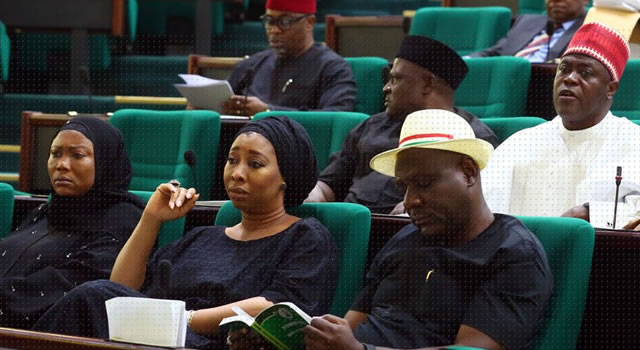Politics
Reps to set up probe into Abacha loot recovered since 1999

The House of Representatives wants to know how much the administration of former President Olusegun Obasanjo and subsequent governments recovered from the funds late military dictator, General Sani Abacha, is said to have looted and how the recovered funds were utilized.
Aside Abacha’s loot recovered under Obasanjo, subsequent governments under late President Umar Yar’Adua, former President Goodluck Jonathan, and the current administration of President Muhammadu Buhari all recovered huge sums of money from the funds looted by Abacha.
Obasanjo was President from 1999 to 2007.
Only recently, Buhari’s government concluded the latest negotiation with the Swiss Government to return $322 million Abacha loot to Nigeria.
At its plenary on Wednesday, presided over by the Speaker, Mr. Yakubu Dogara, the House resolved to “Set up an ad hoc committee to investigate the total Abacha loot recovered from 1998 to date; establish the sources and how the money was utilised.
“Also, establish all agreements signed by the government to determine whether they followed due process. “
This came as the lawmakers debated a motion to oppose a Memorandum of Understanding signed by the Swiss Government and the Buhari administration on how the latter would spend the $322 million.
A member from Kogi State, Mr. Karimi Sunday, who moved the motion, reminded the House that the MoU between Nigeria and a foreign government was not binding unless approved by the National Assembly.
“This money was stolen from Nigeria. It is our money. So, it is the duty of the Nigerian legislature to decide how the money will be spent by appropriation.
“The position taken by the government that the money will be paid directly to the accounts of poor Nigerians, based on the MoU purported to have been signed with the Swiss Government is not acceptable,” he said.
He went further to say that the proper thing to do was to remit the recovered funds into the Federation Account for distribution to the three tiers of government.
According to Sunday, the Federal Government’s share could be paid into the Consolidated Revenue Fund where it would be appropriated by the National Assembly on federal projects.
He then proposed that the executive should urgently forward a supplementary budget to the National Assembly for the government’s share of the $322m to be used for the completion of the Ajaokuta Steel Company.
READ ALSO: I stand with N’Assembly on state police— Atiku
In his contribution on the debate, a former chairman, House Committee on Appropriation, Mr. Abdulmumin Jibrin, said that it would be better for the House to first determine the exact amount of funds recovered from the Abacha stash since 1998.
Jibrin said that knowing the total recovered amount and how the funds were spent by successive governments would assist the House in taking a position on the $322 million.
“At some point, while I was the chairman, Committee on Finance, we were told that it was $1 billion. $1 billion is about N350 billion. At another time, the figure was given as $1.5 billion. So, we don’t know exactly what the exact figure is,” Jibrin said.
Following this suggestion, the House resolved to investigate the total recovered loot from Abacha from 1998 till date.
RipplesNigeria… without borders, without fears
Click here to join the Ripples Nigeria WhatsApp group for latest updates.
Join the conversation
Support Ripples Nigeria, hold up solutions journalism
Balanced, fearless journalism driven by data comes at huge financial costs.
As a media platform, we hold leadership accountable and will not trade the right to press freedom and free speech for a piece of cake.
If you like what we do, and are ready to uphold solutions journalism, kindly donate to the Ripples Nigeria cause.
Your support would help to ensure that citizens and institutions continue to have free access to credible and reliable information for societal development.






















